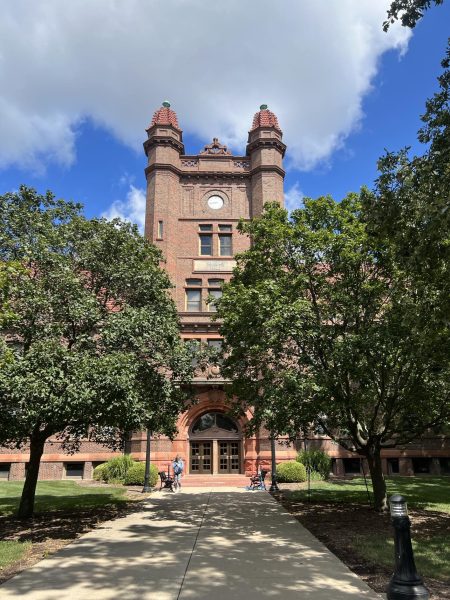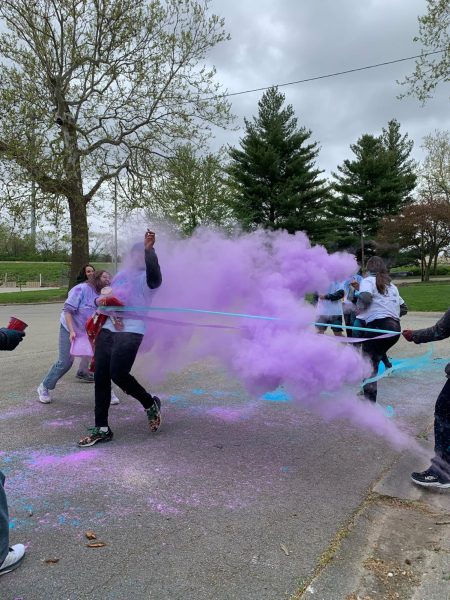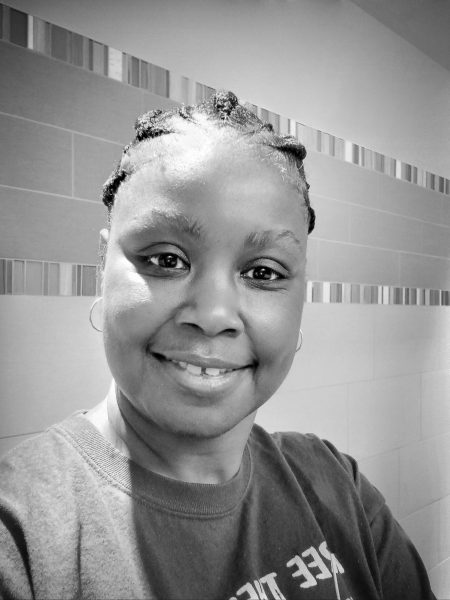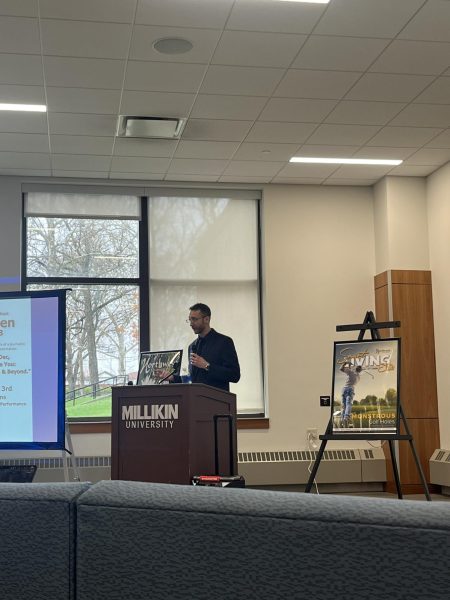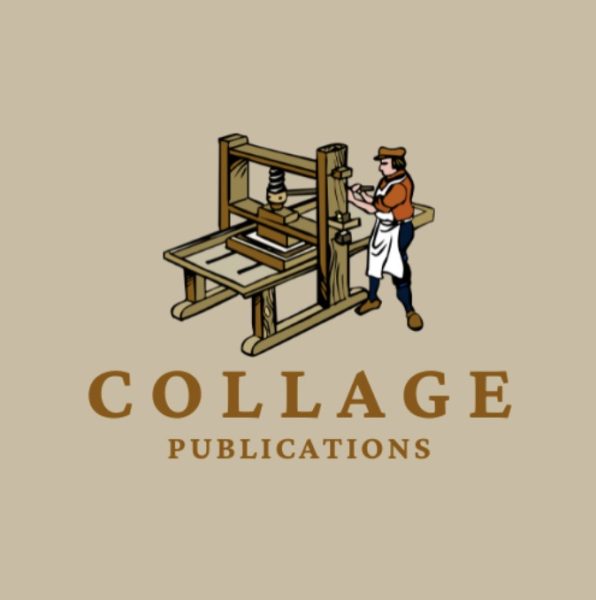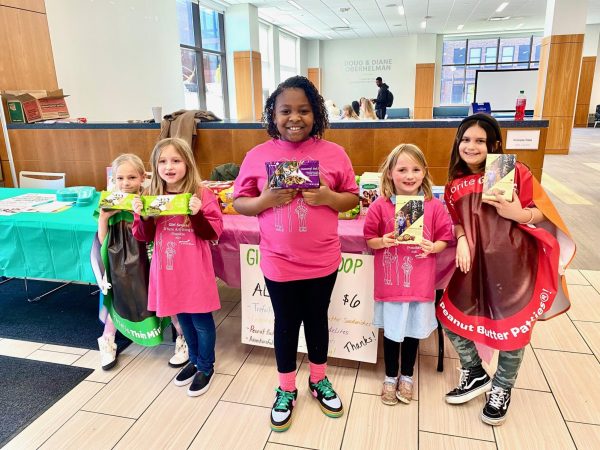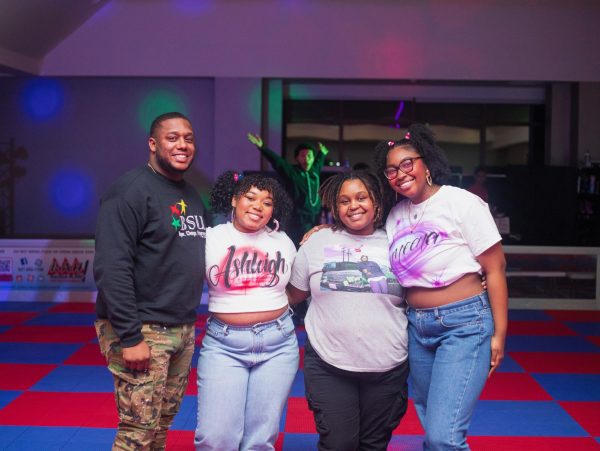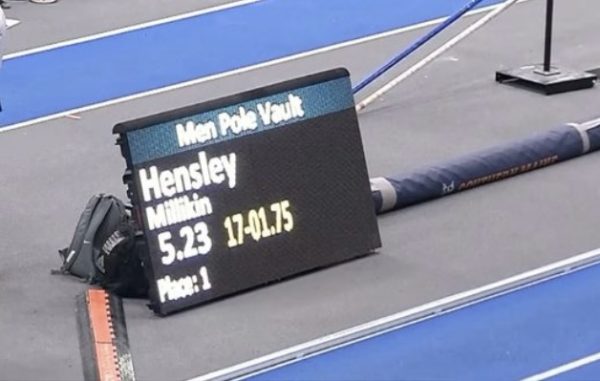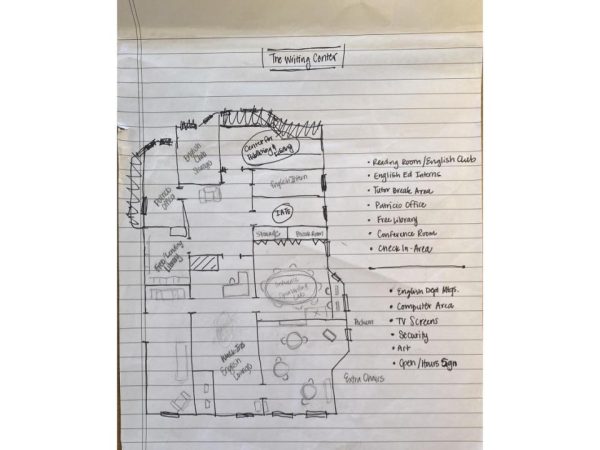Dr. Tony Magagna awarded Warren G. Hardy Distinguished Professorship in English
Dr. Tony Magagna was recently awarded the Warren G. Hardy Distinguished Professorship in English. Magagna will have the endowed professorship for the next two years. Instead of teaching four classes per semester, he will be teaching three, while spending time attending conferences and doing research to create new courses in English literature.
Although he recently received the award, Magagna has been working on this project for some time now.
“My proposal was to research and put together a research project along with new courses, mainly on the impact of new media, especially the blurring boundaries on the study and creation of literature,” Magagna said.
Magagna spoke of a new larger field that has been around a few years called the digital humanities.
“It’s basically to explore the way humanities education and scholarship is being reshaped by the digital world and digital resources.
On Tuesday, Feb. 24 at 7 p.m. Magagna gave a lecture on Mash-Ups, Remixes and Hybrids: The New American Literature. Throughout the lecture, he focused on the blurred boundaries and redefinitions of literature. He discussed distinctions between high and low culture, immersive media and technologies, and global exchanges and interchanges.
With new technology rising in our society, Magagna is interested in creating new ways of studying and analyzing literature.
“I’m still putting the class together, but right now it’s just going to be listed as an EN 220, but I’m hoping to develop it into something that becomes a part of the regular curriculum,” Magagna said. “Right now I’m just calling it Hybrid Literatures, and I’m basically thinking of doing a mix of units where on one hand we read literature that’s about the digital era, and another section experimenting new ways to study traditional literature using new media resources.”
For instance, Dr. Magagna mentioned a book entitled Ophelia Has Joined the Group Maidens Who Don’t Float, which is set up like Facebook newsfeeds and profiles, and includes many different literature classics and characters. In his new courses, students would get the chance to create something like this, after figuring out the themes and characters of a piece.
Another type of new literature Magagna would like to incorporate into the courses is literature games, such as Device 6, which is a text-based game. It’s a reading experience, but augmented using games, puzzles and music. People are reading even more on devices, such as iPads or Kindles, and those devices are capable of things that books are not.
“You could have a soundtrack that’s built into a book, and scary books could vibrate your device at a scary point,” Magagna said. “There’s brand new possibilities there, and it’s something we’ll see a lot more.”
As far as his courses, they will be starting very soon.
“I’m going to try to do two test runs, then if they’re successful, try to get that course into the regular curriculum,” Magagna said. “If I figure something out, I would do a lower division class next fall, and if I figure out new directions, maybe do an EN 360 upper division course with similar subject matter with a more intense study.”
The first courses would be more like general topic classes, which he would then propose to be a new English class that would be part of digital humanities.
“Children’s and young adult literature always breaks this ground early, and then it filters into more adult literature. I honestly think it’s the same thing that J.K. Rowling is doing with Pottermore,” Magagna said. “She would still say that she wants children to read her books, but she’s finding a way to encourage that reading throughout these more interactive things, and I feel like that’s the best balance.”
An argument that Dr. Magagna had was that since young people will have a different reading experience, and will come to expect this in the future, especially if some of them become writers and create something we can’t even imagine yet.
“It’s been a long process for me, because this is not my area of expertise. My expertise is in regional American literature,” Magagna said. “This really did develop out of my classes here, and really took off while I was doing my Fullbright in Germany, then I brought it back and developed it.”
Dr. Magagna has been developing new types of assignments in his classes here at Millikin throughout the past few years. In his Writing About Literature course, students create online casebooks with essays, and further interactive material about the novel they study during the semester.
“The casebooks have begun to become even more complex. In the one from last year students put together Spotify playlists that could be imbedded into the website,” Magagna said. “It’s a very interactive aspect of it, because when you’re reading a certain chapter, you play a specific playlist. This is just one example of new things you can do to augment the reading or teaching experience.”
The inspiration for researching these new types of literature comes from an experience Dr. Magagna had while he was in college.
“I remember reading a story that had a credit card in it, and I was like, ‘I know what that is, that’s something I do.’ I don’t want students to miss out on that,” Magagna said. “I really like the classics, but there is an experience in reading something that looks like your daily life, where somebody is on Facebook.”
Seeing the importance of contemporary literature, Magagna was able to realize that some of the contemporary literature was even taking on new forms, which he is trying to work into these new courses.
“I want to look at the literature that’s describing contemporary technologies, I want to look at all the wacky stuff with new technology, but I also want to look at the new ways that you can take literature and find new ways to study it,” Magagna said.
On a practical level, however, students will be heading into multiple professions, and will be more likely to present information in a video, info graphic or presentation rather than in an essay. Students will always have to write, and that is something Magagna values, but also sees the value in learning to study and present literature in new ways.
“We’re remiss if we don’t help them explore those other ways, and I think we can do that in a literature classroom where we’re analyzing in different ways of capturing things and different ways of conveying thoughts,” Magagna said. “I think it’s fun to have the conversation, and there’s challenges and problems with running away with it, but there’s also challenges and problems with no acknowledging it. I’m hoping to find the balance.”

